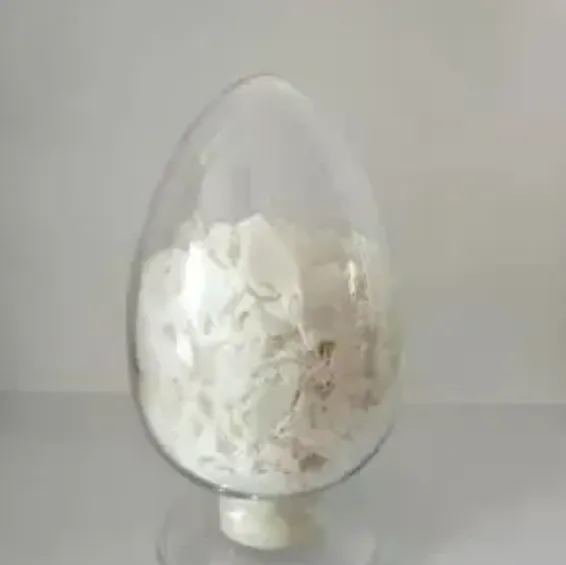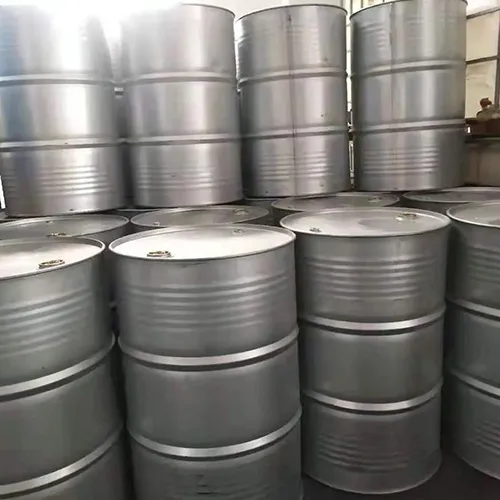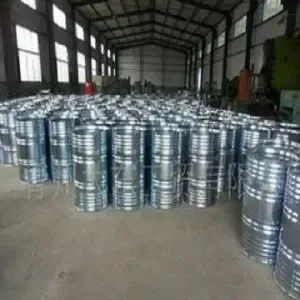Exploring the Role of Pharmaceutical Potassium Iodide
Pharmaceutical potassium iodide is a vital compound used in various medical treatments, primarily for its ability to protect the thyroid gland during radiation exposure. It is commonly prescribed to individuals who have been exposed to radioactive iodine, helping to prevent the absorption of harmful radioactive particles into the thyroid. In addition to its use in radiation protection, Pharmaceutical potassium iodide also plays a key role in treating iodine deficiency, particularly in regions where iodine-rich foods are scarce.

The pharmaceutical-grade potassium iodide used in medical treatments is manufactured to meet strict purity standards, ensuring its safety and effectiveness. It is typically administered as a tablet or liquid and has been proven to be an essential tool in both emergency and preventive healthcare. As the global demand for iodine-based treatments grows, reliable suppliers and manufacturers of Pharmaceutical potassium iodide are crucial to maintaining high-quality standards and supporting healthcare professionals in their mission to protect public health.
Beyond its medical uses, Pharmaceutical potassium iodide is also used in the production of iodine-based compounds, which are important for industrial processes such as the synthesis of chemicals and in photographic products. With increasing awareness of iodine deficiency and the growing need for radiation protection, the demand for Pharmaceutical potassium iodide continues to rise.
The Versatility of Cyclopropyl Ketone in Chemical Synthesis
Cyclopropyl ketone is an important intermediate compound widely used in organic chemistry and pharmaceutical synthesis. Its unique structure, consisting of a three-membered cyclopropane ring attached to a carbonyl group, makes it an essential building block in the development of complex molecules. The reactivity of cyclopropyl ketone allows it to undergo a variety of reactions, making it versatile in the synthesis of pharmaceuticals, agrochemicals, and other chemical products.
One of the primary applications of cyclopropyl ketone is in the synthesis of cyclopropane derivatives, which are important in the creation of novel pharmaceutical agents. These derivatives are utilized for their ability to modulate biological activity, including their use as antiviral, anticancer, and antimicrobial agents. As such, cyclopropyl ketone is integral to the development of new drug compounds that address a wide range of medical conditions.
In addition to its pharmaceutical applications, cyclopropyl ketone is used in the production of specialty chemicals, including fragrances and flavor compounds, and as a precursor in the synthesis of various agrochemicals. The unique chemical properties of cyclopropyl ketone enable it to serve as a versatile and reliable intermediate for industries requiring high-quality chemical compounds.
The Role of Deionized Formamide in Laboratory and Industrial Settings
Deionized formamide is a highly purified form of formamide, a simple organic compound with wide applications in both laboratory and industrial settings. The deionization process removes minerals and impurities from formamide, resulting in a product that is highly suitable for use in various scientific and industrial applications. One of the key uses of deionized foramide is in molecular biology, where it is used as a solvent in DNA and RNA research.
In molecular biology, deionized foramide is particularly valuable for its ability to denature nucleic acids, making it essential in techniques like gel electrophoresis and hybridization assays. The purity of deionized foramide ensures that it does not introduce contaminants into experiments, making it a reliable choice for sensitive biological research. Additionally, its ability to lower the melting temperature of nucleic acid duplexes allows for more controlled and precise experiments.
Beyond molecular biology, deionized foramide also finds applications in the chemical and pharmaceutical industries, where it is used as a solvent in the production of various chemicals. Its ability to dissolve a wide range of substances, combined with its purity, makes it a valuable component in many industrial processes, including the synthesis of specialty chemicals, coatings, and formulations.
The Growing Demand for Pharmaceutical Potassium Iodide, Cyclopropyl Ketone, and Deionized Formamide
The global demand for Pharmaceutical potassium iodide, cyclopropyl ketone, kuma deionized foramide is steadily increasing as industries and healthcare sectors continue to expand. As awareness of iodine deficiency and the need for radiation protection grows, the demand for Pharmaceutical potassium iodide will continue to rise, especially in countries with nuclear power plants or regions prone to natural disasters.
At the same time, the expanding field of pharmaceutical research, particularly in the development of new antiviral and anticancer drugs, has fueled the demand for cyclopropyl ketone. This compound is being increasingly used in the synthesis of novel drug candidates, driving growth in the chemical and pharmaceutical sectors.
Furthermore, the ongoing advancements in molecular biology and biotechnology are contributing to the increasing need for deionized foramide in research and industrial applications. As scientific research pushes forward, especially in genetics and genomics, the purity and effectiveness of solvents like deionized foramide will be crucial in ensuring the success of experiments and the development of new treatments.
As a result, manufacturers and suppliers of these essential chemicals must continuously innovate to meet the rising demand and provide high-quality products that meet the stringent standards required by modern industries and healthcare sectors.
Pharmaceutical potassium iodide FAQs
What is pharmaceutical potassium iodide, and how is it used?
Pharmaceutical potassium iodide is a compound used in medical treatments to protect the thyroid from radiation exposure and to treat iodine deficiency. It is typically available in tablet or liquid form and is essential for individuals who have been exposed to radioactive iodine or are at risk of iodine deficiency. In addition to its medical uses, it is also involved in industrial processes related to the production of iodine-based compounds.
What are the applications of cyclopropyl ketone in chemical synthesis?
Cyclopropyl ketone is widely used as an intermediate in organic synthesis, particularly in the pharmaceutical industry. It is a key building block for the synthesis of cyclopropane derivatives, which are important in the development of drugs with antiviral, anticancer, and antimicrobial properties. Additionally, cyclopropyl ketone is used in the production of specialty chemicals, including fragrances, flavor compounds, and agrochemicals.
How is deionized formamide used in molecular biology?
Deionized formamide is primarily used in molecular biology as a solvent for denaturing DNA and RNA. It is commonly used in techniques like gel electrophoresis and hybridization assays, where its ability to lower the melting temperature of nucleic acid duplexes is crucial for successful experiments. Its high purity ensures that it does not introduce contaminants, making it a reliable choice for sensitive research.
Why is deionized formamide preferred in laboratory settings?
Deionized formamide is preferred in laboratory settings due to its high purity and ability to dissolve a wide range of substances. The deionization process removes impurities and minerals, making it ideal for sensitive experiments, particularly in molecular biology. It is used to ensure accurate results in DNA and RNA research and is also a reliable solvent in chemical and pharmaceutical industries.
What is the global demand for pharmaceutical potassium iodide, cyclopropyl ketone, and deionized formamide?
The global demand for Pharmaceutical potassium iodide, cyclopropyl ketone, kuma deionized foramide is growing as industries in healthcare, pharmaceuticals, and biotechnology expand. The increasing need for iodine-based treatments, advancements in drug synthesis, and the growth of molecular biology research are driving the demand for these chemicals, making them essential in modern industries and scientific research.
Post time: May . 23, 2025 14:16


















